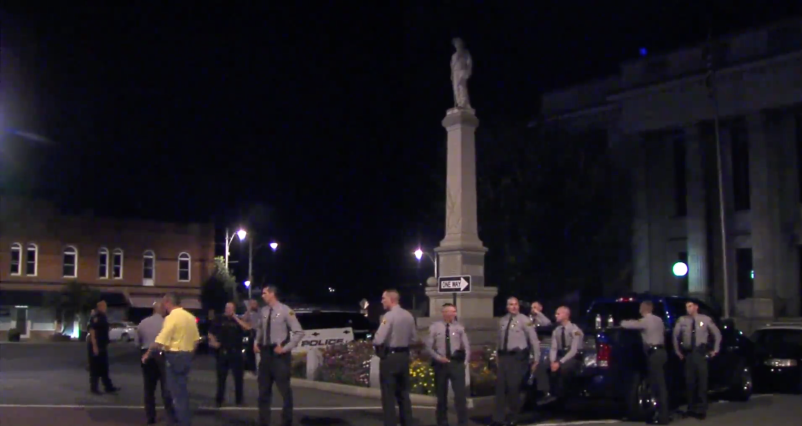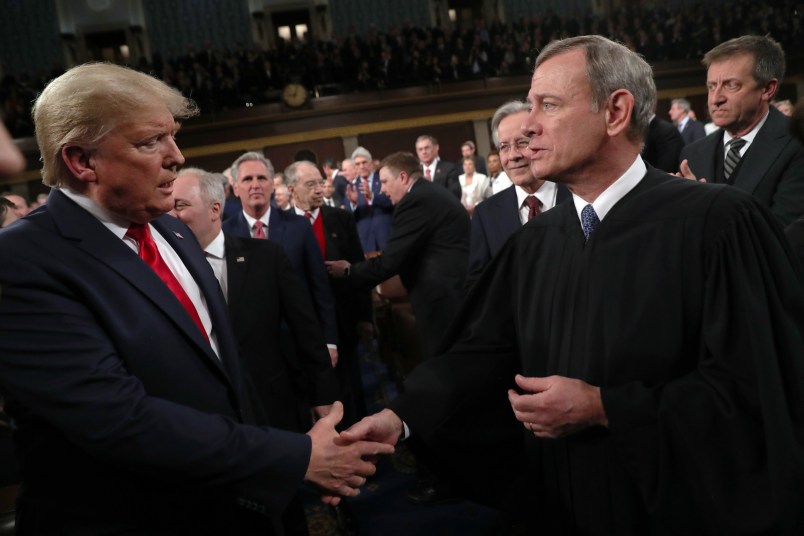At a county board meeting Monday evening in Alamance County, North Carolina, a group of concerned citizens appeared before the board to request that a Confederate statue in the county be left alone, according to Times News, a local newspaper.
While no vote was taken on the removal of the monument, the request pushed one member of the Alamance County board to defend the statues as part of the community’s heritage and say that he is “not ashamed” of his great grandfather who had what he called “workers” on his farm, not slaves.
Commissioner Tim Sutton — who ran for his seat as a Republican in 2016, Times News reported — said he would never vote to remove Confederate statues, which have become a topic of debate at the local and national level after a recent white nationalist protest against the removal of a Robert E. Lee statue turned violent in Charlottesville, Virginia.
“If it comes down, it goes back up. To heck with facts,” Sutton said, after other county commissioners responded to the request from the Alamance County Taking Back Alamance County (ACTBAC) group. “The emotions have just gone haywire. I am not going to be a victim of political correctness. I am just not going to do it. Label me all you want, say what you will about me.”
He went on to say he wasn’t ashamed by his great-grandfather for doing “what he did” because the “workers” — whom he apparently wouldn’t call slaves — on his family farm were given land.
“It is my understanding that when (my great-grandfather) died, from Sarah, my grandmother, that some guys on the farm, you can call them slaves if you want to, but I would just call them workers, that they raised a good bit of my family,” he said, according to Times News.
“When the time came, my great-grandmother gave them land. I am not going to be an assault on logic, an assault on the history of this country and the heritage of this area and this country. Not going to do it,” he said.
This past weekend, opposing groups of protesters gathered at the Confederate soldier statue, which is 30-feet tall and located in the heart of downtown Graham, N.C. The protest was peaceful, local news outlet WFMY News reported.
While Sutton did not immediately respond to TPM’s request for comment, criminal justice writer Josie Duffy Rice confirmed on Twitter that she spoke with Sutton who said he wasn’t ashamed of his remarks and said the workers were “part of the family, and they were happy.”
So, uh, I just called this guy, and WOW. https://t.co/kcMOeS342J
— josie duffy rice (@jduffyrice) August 22, 2017
His quotes: "It is my understanding that the people working on their farm were not considered slaves"
— josie duffy rice (@jduffyrice) August 22, 2017
When I asked if the black "workers" on his family's farm in 1861 were paid, he said "they were part of the family, and they were happy"
— josie duffy rice (@jduffyrice) August 22, 2017
"I don't care what you say. They were happy, they had a place to stay, and sustenance. They weren't in chains."
— josie duffy rice (@jduffyrice) August 22, 2017
He literally just argued that slaves weren't slaves because they had a place to live.
— josie duffy rice (@jduffyrice) August 22, 2017
"You think you know everything. You think Thomas Jefferson owned slaves? You think those workers hated him?"
— josie duffy rice (@jduffyrice) August 22, 2017
This man is an elected official in Alamance County, which is 20% black. That's significantly more than the national average.
— josie duffy rice (@jduffyrice) August 22, 2017











He should therefore be happy to act as a slave for a descendent of one of those ‘workers’.
Isn’t that special?
Right. And yet it’s US that want to “erase history.”
I don’t know about North Carolina, but my 4th grade Virginia history book explained that although some masters in Virginia were harsh, the great majority treated their slaves really well, and that their slaves were happy - noting, as if to prove the point, that it was in the masters’ self interest to be kindly. And another supposedly important historical fact - on which I was actually tested - was that General Lee’s horse’s name was “Traveller.”
The Virginia public schools taught me many things - just not the things they intended to.
“Workers” whom Great-Grandpa could rape at will.
“Workers” whose children Great-Grandpa could sell off.
“Workers” whom Great-Grandpa could whip, starve, or hang at his pleasure.
We all know exactly what “heritage” those Confederate statues represent.